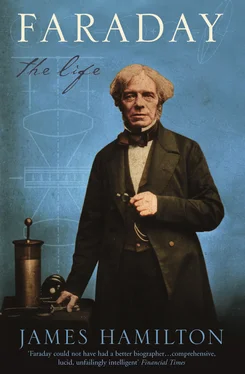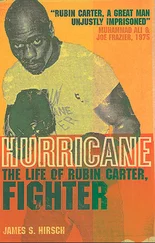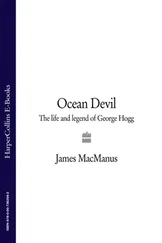Great world events were passing under Faraday’s very nose in that place, but he did not seem to fathom their importance. His entry for Tuesday, 1 February is restricted to: ‘This morning the town was all in uproar and running to see the passing of a large train of artillery which is going up towards Lyons. They seem in great haste.’ 16
And four days later, having amused himself by standing at the edge of the parade ground and watching the clumsy square-bashing:
Drilling is now the occupation of the town, and the Peyrou looks like a Parade. During the morning it is covered by clusters of clumsy recruits who are endeavouring to hold their arms right, turn their toes out, keep their hands in, hold their hands up &c according to the direction of certain corporals who are at present all authority and importance. 17
Then, as if it were merely a passing show, ‘The Pope passed through this place a few days ago in [sic] his way to Italy. He has just been set at liberty … Almost every person in the town was there but myself.’ 18
Faraday’s indifference to Pope Pius VII’s return to Rome may reflect Sandemanian attitudes, but nonetheless Sandemanians were encouraged to keep abreast of current affairs. What did catch Faraday’s attention in these few weeks in Montpellier, however, was the French manner of weighing goods in the market, and of sawing large logs of wood, a technique he recorded in a sketch. Neither method had he seen in England. He trawled around the booksellers, he watched peddlers performing in the market, and he went to the theatre. Although he did not understand the dialogue, he ‘unexpectedly found out the meaning by that universal language of gesture, for it was most exuberantly employed’. 19
While Faraday ignored the climactic events, their significance was clear to Sir Humphry. He wove the grand sight of a British fleet in the Gulf of Lyons, which Faraday too must have seen, into his poem ‘The Canigou’, in praise of the peak in the French Pyrenees.
… On the wave
Triumphant ride the fleets of Ocean’s Queen.
My heart throbs quicker, and a healthful glow
Fills all my bosom. Albion, thee I hail! –
Mother of heroes! mighty in thy strength!
Deliverer! from thee the fire proceeds
Withering the tyrant; not a fire alone
Of war destructive, but a living light
Of honour, glory, and security, –
A light of science, liberty, and peace! 20
Though he had been admitted to France as a guest of Napoleon, perhaps also as a political pawn, a sign to all warring parties that science was above politics and warfare, Davy had no doubt at all where his loyalties lay. Science, to him, was a real part of the war effort, part of Britain’s fire, the living light sent out to wither the tyrant, as he expressed it. His role, as exemplified by his analysis of iodine, was to be the leading edge of the fire, and being jealous of French achievements, he aimed to humiliate French science before he returned to England.
Leaving Montpellier before sunrise on Monday, 7 January, they arrived in Nîmes at noon. They spent the rest of the day, and the next, picking about the Roman remains, the Pont du Gard, the Amphitheatre, the Maison Carré and the Grand Fountain. Faraday goes into much detail about these – some of the information reads as if it has been lifted out of a guidebook – but he seems to be more greatly taken by the geological activity around the Grand Fountain than by the antiquities themselves: ‘Rocks of enormous magnitude and height are so thrown together by nature as to form a broken kind of crescent.’ 21He is prosaic about the remains, descriptive, matter-of-fact:
This place was by the various and overwhelming accidents of time nearly buried and forgotten. The canal was filled up with earth and the springs stopped or diverted. It was not more than a century ago that the encumbring rubbish was cleared away and the broken or destroyed parts rebuilt, but this has been done in a manner approaching to the ancient style and thus an adequate idea may be formed of what it originally was.
From Nîmes they went to Avignon, across the Rhône on the rope-ferry, their carriage perched precariously across the beam. Then to Vaucluse to see the famous fountain and the home of Petrarch. The place inevitably drew out the poet in Davy, and warmed his fellow-feeling with Petrarch:
A scene of pastoral beauty glads my eye,
Well suited to a pastoral poet’s song.
…
I wonder not the poet loved thy wave, –
Thy cavern’d rocks, – thy giant precipice;
For such a scene was suited well to break
The tyrant-spell of love … 22
Davy, the romantic scientist, is hopelessly revisionist when it comes to writing poetry. Although he performed his science with the aplomb of a man of the Romantic era, his poetry drives him back to the first half of the eighteenth century, the golden age of Thomson, Pope and Akenside. From Faraday’s perspective, however, we have a more detached reading of Petrarch’s vale:
At some little distance from the head, and after having passed two or three beautiful cascades, the stream divides into branches forming three rivers of considerable size. The water is extremely clear and pure, and of a beautiful green colour. The bed of the river is carpetted with a thousand water plants, and an eternal verdure seems to reign in the environs of Petrarch’s haunts. 23
Faraday is wholly susceptible to natural beauty, and writes in a style that can evoke the high colour, sparkle, light and jewels in a landscape. It is a language that Goethe, Humboldt and Coleridge knew best.
There are signs in the Journal that Sir Humphry explained things regularly to Faraday as they went along, discussed the geology of the country, talked about scientific phenomena as the occasion demanded. Much of the geological information that Faraday records must have come from Davy there and then; because there are only a few recorded instances of direct instruction we should not suppose that that was all there was. In the foothills of the Alpes Maritimes Sir Humphry expatiated on the nature of the wind coming down the valley at Vaucluse, on the melt-water running off Mont Ventoux, and together he and Faraday seem to have discussed the dramatic crepuscular rays that they saw on the road to Aix-en-Provence.
They were now travelling along some of the most beautiful coastal roads in Europe, and after forty-seven days on the road from Paris, the ecstatic responses that burst out of Faraday in the Forest of Fontainebleau had been temporarily blunted: ‘Left Aix this morning. Nothing particular the whole day, for pretty scenery has now become common, though not less interesting.’ 24
It was not the grand sweep of landscape that captivated him now, but detail and opportunities to exercise, so he ran around after the small green lizards, ‘too nimble to be caught’, that he found basking in the sun on banks of lettuces. He was amused at being told by an innkeeper that the Pope had spent the night at his inn six days earlier; to induce them to stay they were given the Pope’s bed to sleep in. Faraday was surely the only Sandemanian ever to have been offered the Pope’s bed, an event for which his religious training gave no particular guidance.
They travelled on through Fréjus, ‘the delightful town of Nice’, and on towards the Italian border. Faraday’s sense of wonder returned to him in a flood.
I never saw such fine scenery as on this part of our road. It was magnificence and immensity itself. The rocks often rose perpendicularly on the side of the road for many hundred feet, and sometimes overhung it in the most terrific manner. In one place the way had by blasting and hewing been actually cut out of the side of a leaning rock, and with the roaring river at the bottom and the opposite precipices was an inconceivably romantic situation. The whole here limestone. 25
Читать дальше












